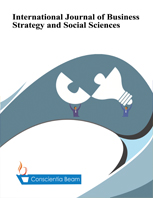Auxiliaries and Supervisors at War: The Spillover Effect of Supervisor-Subordinate Aggression on University Staff Productivity
DOI:
https://doi.org/10.18488/171.v5i2.3100Abstract
Using Kampala International University (KIU) as a study sample, the study inquired into the effect of the continued use of aggression on employee productivity. Utilizing a cross-sectional survey design, data were collected sequentially using a mixed method sequential approach. A sample size of 108 senior academic staff was used for numerical data, while 10 key informants were selected for qualitative interviews. Findings revealed that when all the four parameters of X were taken together, explained only 22.1% variation in Y (adjusted r2 = 0.221). Again, a unit increase in any of the predictors was accompanied by an inverse reaction in the predicted variable, and for this reason, the multiple linear regression model was insignificant (F. =55.361, p. = 0.088 > 0.05). However, unlike the quantitative data, interview responses indicated that whereas retaliation is counterproductive, it has been a potential recipe for growth in some instances although at a negligible scale. Qualitative data further revealed that the impact of aggression consistently reduces with a consistent corresponding increase in positive reinforcement such as bonuses, prompt monthly pay, and staff development schemes. Since employee satisfaction and organizational success complement each other, the study recommends a balanced approach that aligns organizational interests with employee needs and aspirations for a productive working environment.

